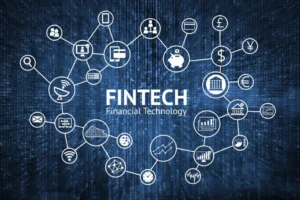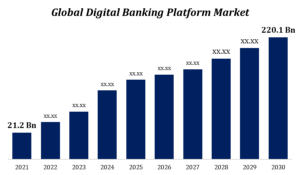Unlocking the Power of Blockchain: Transforming Industries Through Decentralized Technology
Blockchain technology has emerged as a transformative force, revolutionizing industries and redefining the way we conduct transactions, manage data, and establish trust. By providing a decentralized and transparent platform, blockchain has the potential to enhance security, streamline processes, and foster innovation across various sectors. In this blog, we will explore the power of blockchain and how it is transforming industries through its decentralized technology.
Understanding Blockchain:
Blockchain is a distributed ledger technology that allows participants to record and verify transactions in a secure and transparent manner. It operates on a decentralized network, where multiple participants (nodes) maintain a synchronized copy of the ledger. Each transaction is grouped into blocks and added to a chain, forming an immutable record of all past transactions. The decentralized nature of blockchain ensures that no single entity has control or ownership over the data, making it resistant to manipulation and fraud.
Transforming Industries:
- Finance and Banking: Blockchain has had a profound impact on the financial industry, offering faster, more secure, and cost-effective transactions. It enables peer-to-peer (P2P) transactions, bypassing intermediaries, reducing fees, and increasing transaction speed. Smart contracts, powered by blockchain, automate contractual agreements and facilitate efficient settlement processes. Blockchain also enhances financial inclusion by providing access to financial services for the unbanked population in developing regions.
- Supply Chain Management: Blockchain has the potential to revolutionize supply chain management by providing end-to-end transparency, traceability, and accountability. It enables the secure tracking of products from their origin to the end consumer, reducing fraud, counterfeiting, and the circulation of counterfeit goods. Through blockchain, stakeholders can verify the authenticity, quality, and ethical sourcing of products, fostering consumer trust and supporting sustainable practices.
- Healthcare: Blockchain can transform the healthcare industry by enabling secure and interoperable sharing of patient data among healthcare providers. It improves data integrity, privacy, and security, ensuring that patient records are accurate and protected against unauthorized access. Blockchain can also facilitate the management of clinical trials, drug supply chain tracking, and healthcare payment systems, improving efficiency and reducing fraud.
- Real Estate: Blockchain has the potential to streamline the real estate industry by digitizing property transactions and simplifying property ownership transfers. It eliminates the need for intermediaries, reduces transaction costs, and enhances transparency. Blockchain-based smart contracts automate property transactions, ensuring compliance and enabling faster and more secure real estate deals.
- Energy and Sustainability: Blockchain can facilitate the integration of renewable energy sources and enable peer-to-peer energy trading. Through blockchain-enabled microgrids, energy producers and consumers can transact directly, optimizing energy distribution and reducing reliance on centralized utility providers. Blockchain also enables transparent tracking of carbon emissions and supports sustainability initiatives.
- Intellectual Property: Blockchain technology provides an immutable and timestamped record of intellectual property ownership, ensuring the protection of digital assets. It allows creators to prove ownership, track usage, and receive fair compensation for their intellectual property. Blockchain-based platforms can also facilitate the licensing and distribution of digital content, empowering creators and combating piracy.
Blockchain technology is transforming industries by providing a decentralized, secure, and transparent platform for transactions, data management, and trust-building. Its impact extends across finance, supply chain management, healthcare, real estate, energy, intellectual property, and more. As blockchain continues to evolve, it holds the potential to reshape the way we conduct business, foster innovation, and create new opportunities. Embracing blockchain technology will enable organizations to enhance security, efficiency, and transparency, paving the way for a decentralized and trust-based economy in the digital age.




































